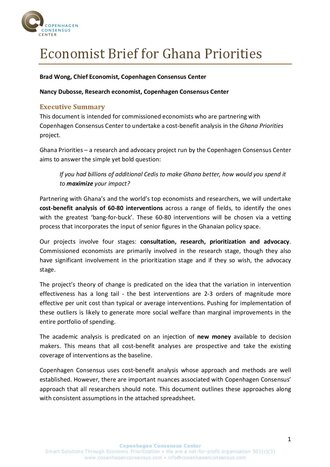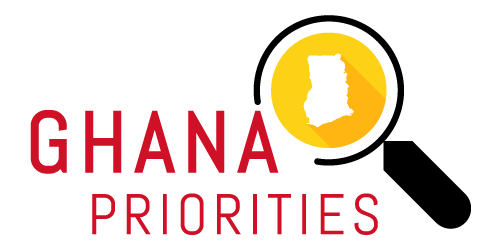Brief to researchers
 Partnering with Ghana’s and the world’s top economists and researchers, we will undertake cost-benefit analysis of 60-80 interventions across a range of fields, to identify the ones with the greatest ‘bang-for-buck’. These 60-80 interventions will be chosen via a vetting process that incorporates the input of senior figures in the Ghanaian policy space.
Partnering with Ghana’s and the world’s top economists and researchers, we will undertake cost-benefit analysis of 60-80 interventions across a range of fields, to identify the ones with the greatest ‘bang-for-buck’. These 60-80 interventions will be chosen via a vetting process that incorporates the input of senior figures in the Ghanaian policy space.
Our projects involve four stages: consultation, research, prioritization and advocacy. Commissioned economists are primarily involved in the research stage, though they also have significant involvement in the prioritization stage and if they so wish, the advocacy stage.
The project’s theory of change is predicated on the idea that the variation in intervention effectiveness has a long tail - the best interventions are 2-3 orders of magnitude more effective per unit cost than typical or average interventions. Pushing for implementation of these outliers is likely to generate more social welfare than marginal improvements in the entire portfolio of spending.
The academic analysis is predicated on an injection of new money available to decision makers. This means that all cost-benefit analyses are prospective and take the existing coverage of interventions as the baseline.
Copenhagen Consensus uses cost-benefit analysis whose approach and methods are well established. However, there are important nuances associated with Copenhagen Consensus’ approach that all researchers should note. This document outlines these approaches along with consistent assumptions in the attached spreadsheet.

